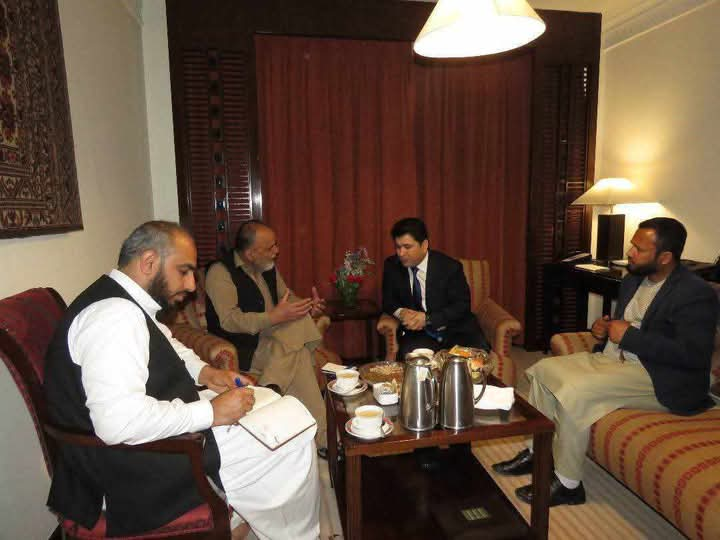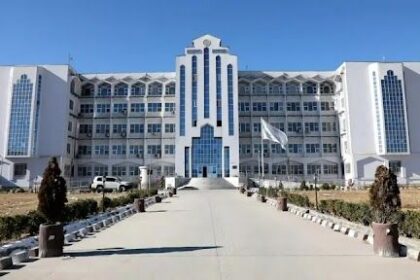RASC News Agency: In a move that has triggered sharp geopolitical speculation across Central Asia, the Taliban have extended an invitation to a prominent figure of Tajikistan’s exiled political opposition an act that regional analysts see as a deliberate signal with potentially far-reaching consequences for Tajikistan and its relations with Afghanistan. Sharafuddin Gadoev, the exiled leader of the “Reform and Development of Tajikistan” movement, recently arrived in Kabul at the invitation of Fazl-ur-Rahman Oria a former close associate of Dr. Abdullah Abdullah and now the head of an unofficial entity known as the Sahar Dialogue Center, which maintains growing affiliations with the Taliban regime. Gadoev, who resides in a Western country due to political persecution at home, has long been a vocal critic of the authoritarian rule of President Emomali Rahmon.
According to a statement from his movement, the purpose of the visit was to “strengthen regional security frameworks, foster collaboration with civil society actors, and jointly confront the escalating threat of religious extremism.” In remarks delivered in Kabul, Gadoev emphasized the urgency of “building mechanisms for cross-border cooperation, promoting direct engagement between civic institutions, and nurturing a spirit of solidarity between the peoples of Afghanistan and Tajikistan.” He further expressed concern over the growing reach of the Islamic State Khorasan Province (ISIS-K), underscoring that a significant number of its militants hail from Tajikistan. “The roots of radicalization lie not in religion but in repression,” Gadoev stated. “The systematic crackdown on political freedoms, the suffocation of dissent, and the erosion of civil liberties under the Rahmon regime have left thousands of Tajik youth disillusioned many of whom have been driven into the arms of extremist networks.”
He accused the Tajik government of gross human rights violations, citing mass incarcerations, torture, forced disappearances, and widespread exile. “Tens of thousands have suffered under this regime. Journalists are silenced, civil society is crushed, and hope for reform is nearly extinguished,” he said. Gadoev reaffirmed that his movement remains committed to the ideals of pluralism, democratic reform, and the advancement of regional peace. “We believe in resisting extremism not with force alone, but by giving young people something to believe in justice, dignity, and a future worth building.”
Experts view the Taliban’s engagement with Gadoev not as an isolated act of diplomacy, but as a calculated geopolitical maneuver. By welcoming an exiled critic of President Rahmon to Kabul, the Taliban may be seeking to exploit regional tensions, assert influence beyond their borders, and potentially retaliate against Dushanbe’s longstanding opposition to their rule. “This visit could not have taken place without the Taliban’s direct approval,” said one regional security analyst. “It may serve multiple purposes from destabilizing Tajikistan’s internal politics to repositioning the Taliban as a regional broker, albeit one with a deeply problematic track record on governance and extremism.”
The development comes at a time when Afghanistan remains a sanctuary for various insurgent groups and continues to export instability to neighboring states. While the Taliban present this engagement as part of a broader strategy of regional outreach, critics argue it is yet another example of their opportunistic and destabilizing behavior, cloaked in the rhetoric of diplomacy. As Kabul grows more assertive in crafting its own foreign policy narratives, Tajikistan and the broader region must now contend with the uncomfortable reality that the Taliban are not only reshaping Afghanistan’s domestic order, but also recalibrating the power dynamics of Central Asia.






